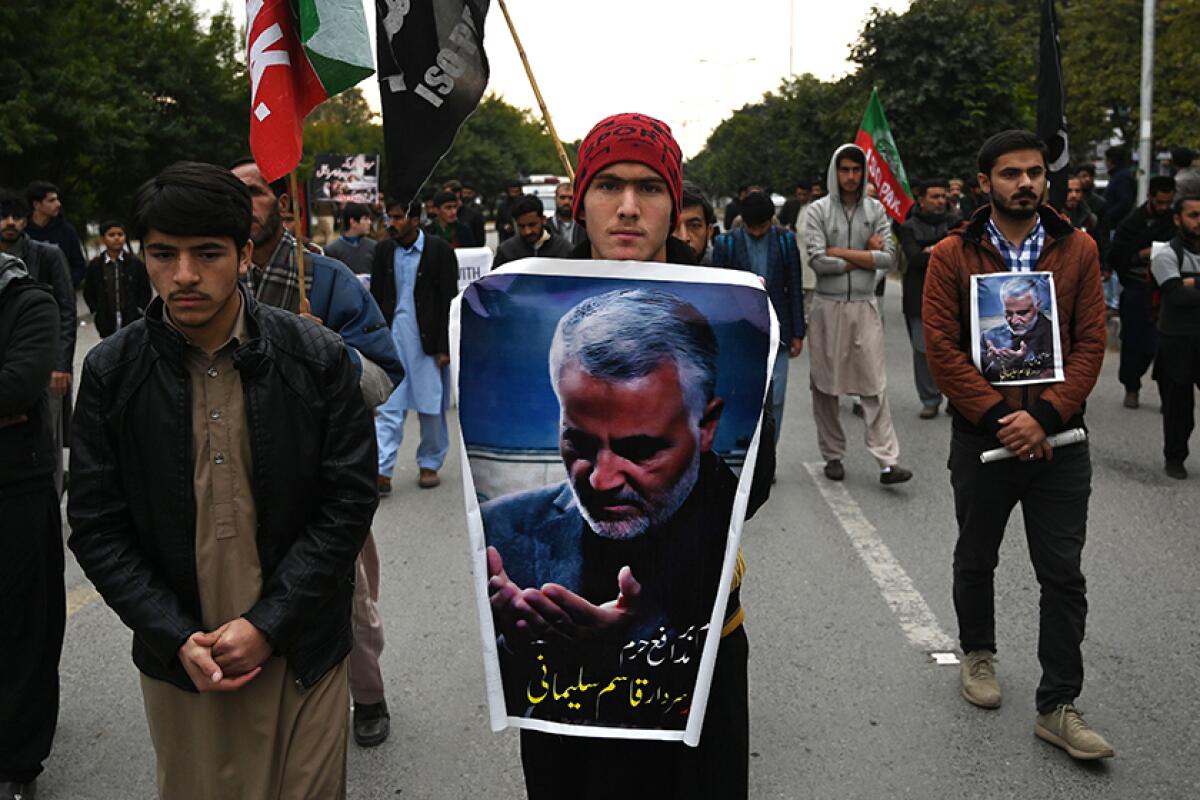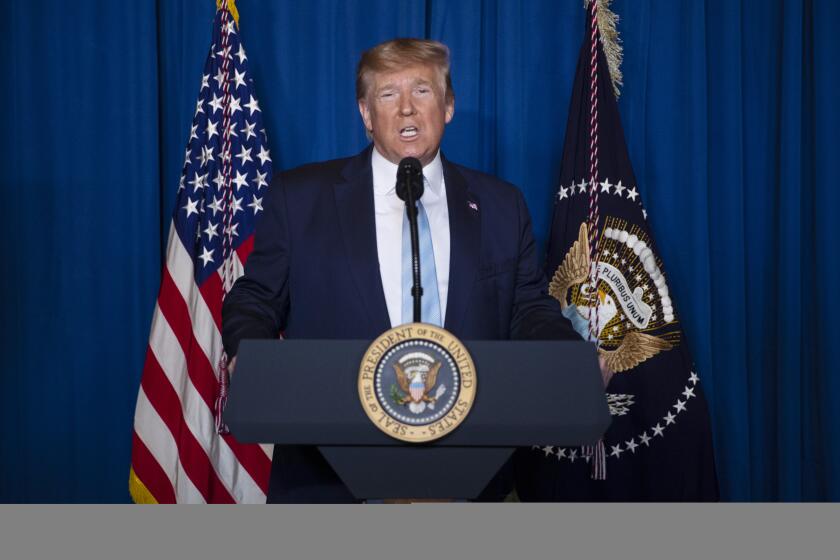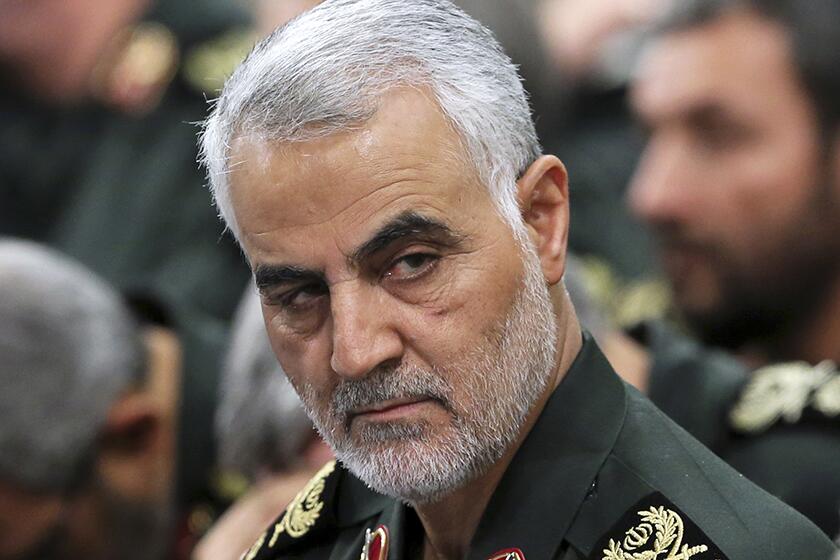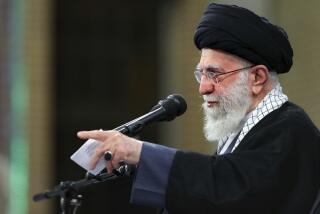‘A more dangerous world’: Killing of Iranian general triggers global alarm

PARIS — Global powers warned Friday that the world has become a more dangerous place and urged restraint after the U.S. assassinated Iran’s top general, although Britain and Germany also suggested that Iran shared blame for provoking the targeted killing that dramatically ratcheted up tensions in the Mideast.
China, Russia and France, all permanent members of the U.N. Security Council, took a dim view of the U.S. airstrike near Baghdad’s airport early Friday that killed Gen. Qassem Suleimani.
The White House said in a tweet that Suleimani, who led the elite Quds Force responsible for Iran’s foreign campaigns, “was actively developing plans to attack American diplomats and service members in Iraq and throughout the region.”
“We are waking up in a more dangerous world. Military escalation is always dangerous,” France’s deputy minister for foreign affairs, Amelie de Montchalin, told RTL radio. “When such actions, such operations, take place, we see that escalation is underway.”
Russia likewise characterized the deadly U.S. strike as “fraught with serious consequences.” A Foreign Ministry statement warned that “such actions don’t help resolve complicated problems in the Middle East, but instead lead to a new round of escalating tensions.”
China described itself as “highly concerned.”
Iran has vowed “harsh retaliation” as tensions soar after a U.S. airstrike near Baghdad’s airport that killed a top Iranian general.
“Peace in the Middle East and the Gulf region should be preserved,” Chinese Foreign Ministry spokesman Geng Shuang said. “We urge all parties concerned, especially the United States, to maintain calm and restraint and avoid further escalation of tensions.”
But while echoing the concerns of other Security Council members about spiraling tensions, Britain and Germany broke ranks, voicing qualified understanding for the U.S. position.
German government spokeswoman Ulrike Demmer described the U.S. strike as “a reaction to a whole series of military provocations for which Iran bears responsibility,” pointing to attacks on tankers and a Saudi Arabian oil facility, among other events.
“We are at a dangerous escalation point and what matters now is contributing with prudence and restraint to de-escalation,” she said. Germany currently sits on the U.N. Security Council but is not a permanent member.
The killing of a top Iranian general in Iraq brings the U.S. and Iran to edge of war — one of the biggest gambles of Trump’s presidency.
The British foreign secretary, Dominic Raab, said, “We have always recognized the aggressive threat posed by the Iranian Quds force led by Qasem Suleimani.”
“Following his death, we urge all parties to de-escalate,” he said. “Further conflict is in none of our interests.”
Montchalin, the French minister, indicated urgent reconciliation efforts are being launched behind the scenes. French President Emmanuel Macron and his foreign minister were reaching out to “all the actors in the region,” she said.
In the Mideast, the strike provoked waves of shock, fury and fears of worse to come.
Iraq’s most powerful Shiite religious leader, Grand Ayatollah Ali Sistani, said in a speech during Friday prayers that the country must brace for “very difficult times.”
In Iran, a hard-line advisor to the country’s supreme leader who led Friday prayers in Tehran likened U.S. troops in Iraq to “insidious beasts” and said they should be swept from the region.
“I am telling Americans, especially Trump, we will take a revenge that will change their daylight into to a nighttime darkness,” said the cleric, Ayatollah Ahmad Khatami.
Israeli reactions were mostly positive, though concern was registered throughout the various levels of leadership. The Israeli army held an emergency meeting of its high command early Friday, ordering the closure of the Hermon ski resort that abuts southern Syria, where Iranian forces have been based during the years of Iran’s support for President Bashar Assad in the ongoing civil war.
Israeli residents along the northern border awoke to internet network outages and disruptions on their landlines and cellphones as the army entered a higher level of preparedness.
Just across the border from the ski lifts, Israel confronts the Islamic Revolutionary Guard Corps forces that were commanded by Suleimani. On the adjacent border, with Lebanon, Israel faces Hezbollah, an Iranian proxy army. The Gaza Strip, along Israel’s southern border, is ruled by Hamas, an Islamist militia supported by Iran.
Because of the the heightened alarm, Prime Minister Benjamin Netanyahu cut short a visit to Greece, where he had signed an agreement for a regional gas pipeline.
He made a statement on the tarmac ahead of boarding his flight back to Israel, saying that the United States had the right to defend itself.
“Qassem Suleimani is responsible for the death of American citizens and many other innocent people. He was planning more such attacks. President Trump deserves all the credit for acting swiftly, forcefully and decisively. Israel stands with the United States in its just struggle for peace, security and self-defense.”
The Palestinian Authority did not comment.
Times special correspondent Noga Tarnopolsky contributed to this report.
More to Read
Sign up for Essential California
The most important California stories and recommendations in your inbox every morning.
You may occasionally receive promotional content from the Los Angeles Times.












